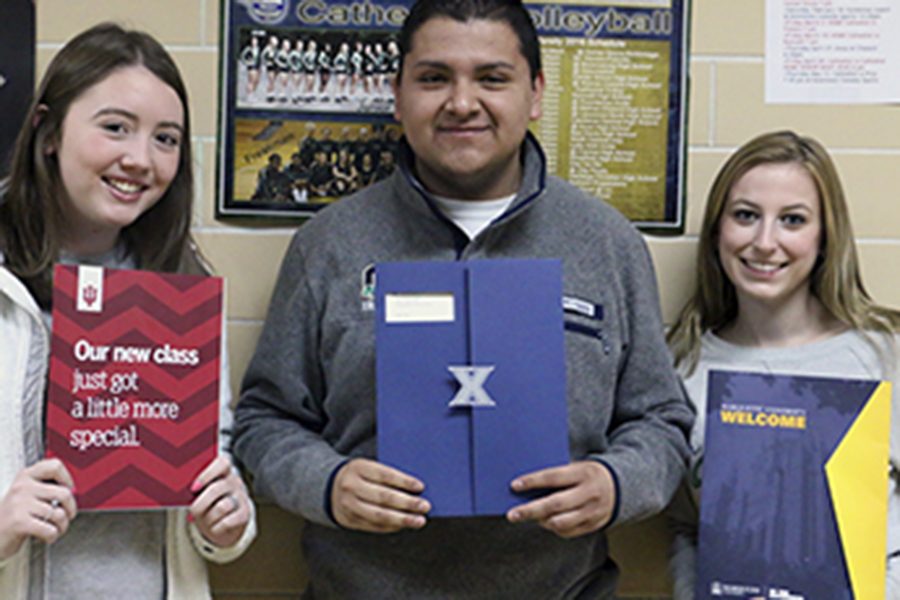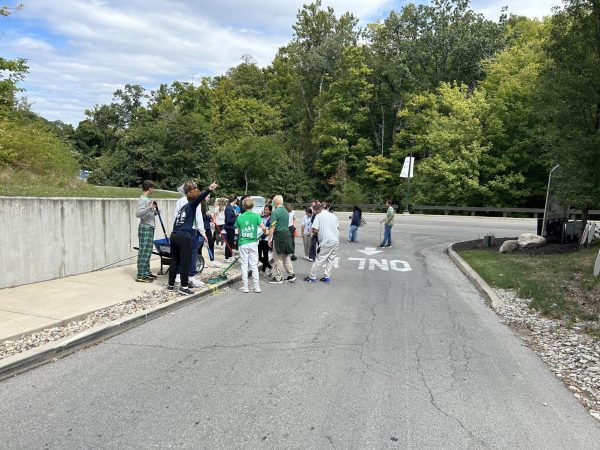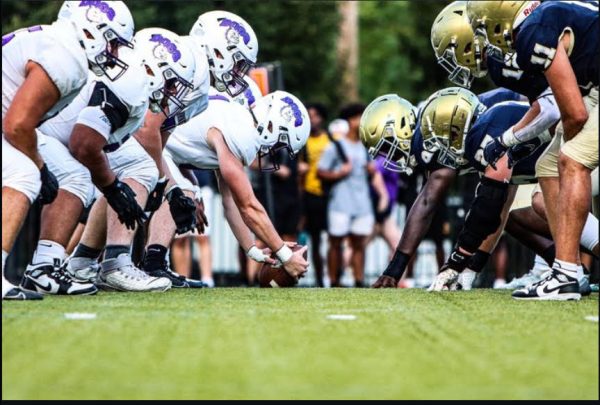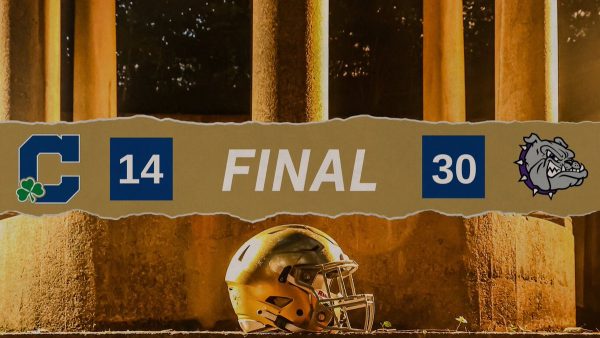Advice for seniors as decision deadline looms
College environment is important says counselor
Seniors Sarah Bertrand, Alan Lozano and Lauren Buday hold up their acceptance letters to Indiana University, Xavier University and Marquette University during Flex on March 17.
As the deadline for choosing a college approaches on May 1, seniors are in the process of deciding which college will be the best fit for them and where they want to attend.
According to college counselor, Mrs. Ann Katz, no college requires an earlier deadline, however, there are important steps and factors to take into consideration when going through the decision process.
How to know
Some students know which college they will be going to and they have already made a deposit.
Katz said, “If (seniors aren’t sure yet), we recommend, if (they) haven’t, to visit the school for sure. If (they) have already visited and are still not sure, if it’s possible to do an overnight visit stay with a student and really experience what it’s like on campus not through the admissions office.”
Additional important factors to consider are financial aid and scholarships. Katz said some seniors are still waiting on those in order to make a final decision.
Katz said, “They can always come see the college counsellors, that’s what we’re here for, to help them make those decisions or talk them through it. We can put them in touch with other students who are there that have graduated from Cathedral if that would help.”
She mentioned that an old fashioned pros and cons list, written down, is always a helpful tool as well.
One senior’s choice
Senior Lauren Buday has been accepted to Purdue University, Butler University, University of Vermont and Marquette University. She is still waiting on four more schools.
Buday said, “I wanted to look at a lot of schools out of state, so I started with that. (I looked at colleges) that were good for my major. From those, I narrowed it down to which ones offer a lot of merit-based scholarships, and I just applied to those and now I’m going to wait and see.”
Katz said, “You want to make sure (the college you choose) is a good fit for you. Just because your boyfriend or girlfriend, or your mom and dad went there, or your friends are going there doesn’t necessarily mean that’s the right school for you. You want to pick it based on whether you think you will feel comfortable there.”
Buday said she wants to attend “a medium sized school, an urban setting, a good recreational center and (somewhere that) has good food.”
Graduate advice
Cathedral graduate Nathan Gray ‘16 attends Wabash College in Crawfordsville, IN.
While going through the college-picking process, Gray wrote, “It started with a lot of google searches about schools. I thought I had some idea of what I wanted, and that idea changed somewhat as I went through the process.
“But as I narrowed it further and further, I relied on how I felt from my college visits and talked through my options with lots of people.”
He continued, “According to all my friends and family, they apparently knew Wabash was the college for me before I did.
“That said, take into consideration the observations of those who know you well, but don’t let someone else make your decision.”
Student’s decision
Katz said it’s also important to choose a college that could still be a good place for you if a backup plan was needed. For example, if a sport didn’t work out or you wanted to change majors.
She said thinking about the logistics of getting to school should be a priority for students. She emphasized, “(Ask yourself) with going far away are you okay with a plane ride or a longer drive, or maybe you’d like to be right in your backyard (with schools) like Butler or IUPUI, so going through those realities and realizing that it’s actually happening (is important).”
Katz continued, “The other thing is this is not a life or death decision so you can transfer, you can change your mind.
“You make the best decision you can now with all the information that you have and then hopefully it’s the right one, and if it’s not you still have choices.”
Another important factor to think about is to stay objective when choosing a school.
Katz said, “I think it is coming back to what’s really important to them, so when they started choosing schools what factors were really important to them and then does that school meet those factors.”
How they chose
Gray wrote, “What I learned about the school, atmosphere and people are definitely true, but like all schools, I was sold on it by seeing it at its very best.
“Is that best image always the day-to-day reality? Not completely, but I don’t feel that I was misled about what to expect or what Wabash would be like. And I am still very happy with my decision to come here.”
Responding to the same question, Buday said she always researches schools and looks at students reviews to see what they liked and disliked about their schools. Many websites offer students the opportunity to research past and present student opinions on everything from the professors to the food offered in the dining halls. These reviews gives her an inside look at the day-to-day life.
Buday said, “I feel like the students’ perspective is the best one.”
Alumni of the college can also offer a glimpse into the daily life on campus. A student’s college counselor can offer students help in connecting them with alumni from many colleges.
Gray wrote, “My advice is to trust your gut when it comes to picking a school. Choose a school where you feel comfortable and excited to be on campus. Take college visits when you can. Nothing gives you a better feel for a school than actually being on campus.
“In the end, Wabash seemed to be the best fit for me academically, financially, and socially.”







